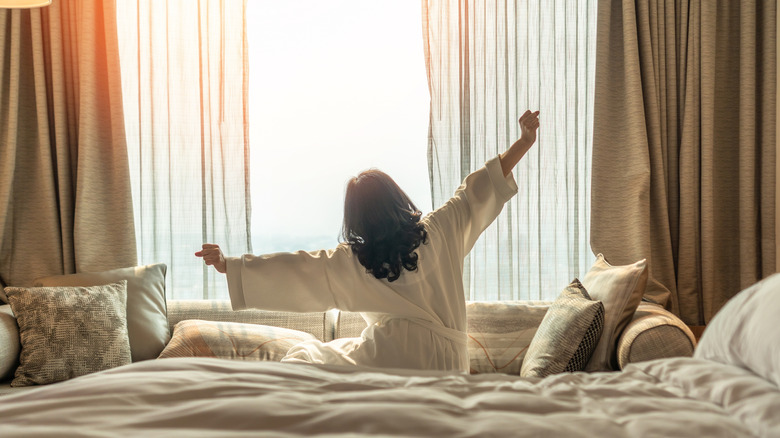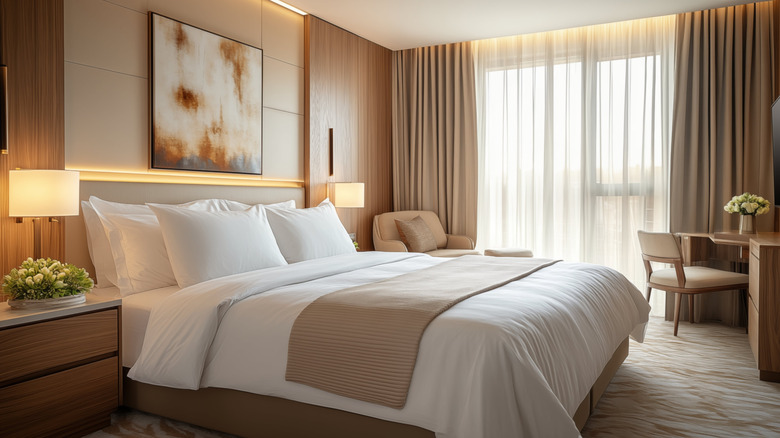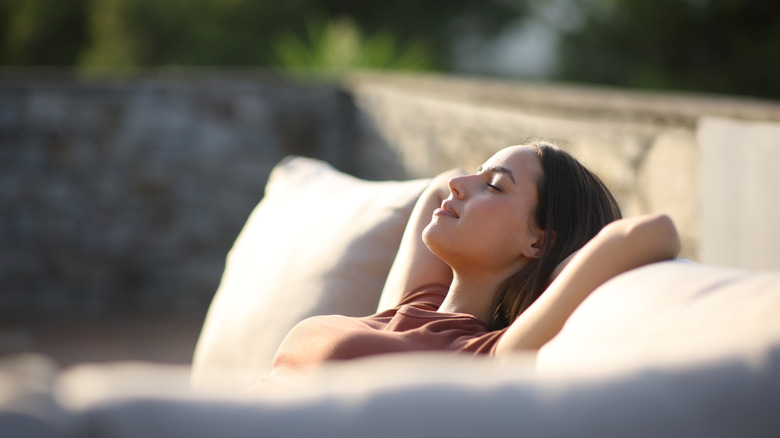For many of us, sleeping well in a hotel is something we may take for granted, as it may go against human nature. We are actually wired not to sleep deeply in unfamiliar environments. Several studies have noted the “first-night effect” — a phenomenon where people don’t have restful sleep on the first night in a new environment since part of the brain stays awake to be on guard, a kind of evolutionary safeguard against potential attackers. Today, even though there’s no danger, people find it difficult to be completely relaxed when they first try and sleep in a new place.
If this is true, then why do we often sleep better in a hotel room that we’ve never been in, surrounded by strangers, in a new city, than we do at home? While it seems counterintuitive, hotels work hard to help you sleep better. Your room’s lighting, temperature, layout, bedding, and sound insulation are all geared towards undisturbed sleep. To really commit to your rest, there are even hacks to help you sleep soundly in your hotel.
In a survey of 2,000 adults, about 73% confirmed that they sleep better in hotels (via Forbes). Reasons ranged from fewer noise interruptions to being able to escape worries and responsibilities that often keep people up at night. Some even credited hotel amenities like the pool or gym to get them tired enough to sleep deeply. Now, properties are going even further in the quest to offer guests a restful night, giving rise to sleep tourism.
Hotels take sleep seriously
Hotels aim to approach rest through multiple strategies, while a home bedroom tends to have many distractions that can detract from sleep. A major factor is the quality of bedding. Mattresses used by hotels are of a much higher quality, offering better body support and breathability for better temperature management. Several hotel brands, like the Four Seasons, Marriott, and the Ritz-Carlton, actually sell mattresses and bedding. While you shouldn’t expect it to be cheap, this makes it possible to have a hotel-quality mattress at home. Fresh sheets and good pillows are equally important.
A hotel room’s broader environment is also curated for better sleep, with blackout curtains and at least some amount of noise reduction. Lighting is generally warm, with the possibility of being lowered; if there’s no dimmer, you’ll notice that the hotel room will invariably have multiple lights in the room, so guests can choose how bright or dim they want their surroundings. Hotel air conditioning also plays a role — people generally sleep better at around 65 degrees Fahrenheit, and hotel air conditioners, in addition to being able to keep things comfortably cool, have the added advantage of providing white noise, which can help with sleep. Of course, many hotels now offer white noise machines to help drown out potential external sounds and aid good sleep.




